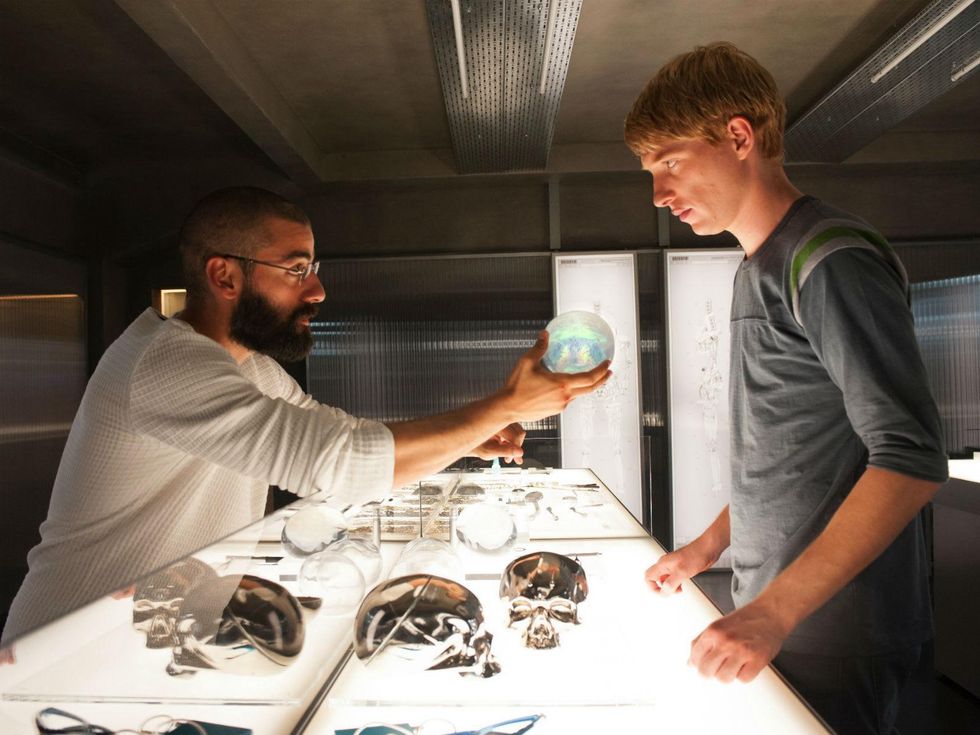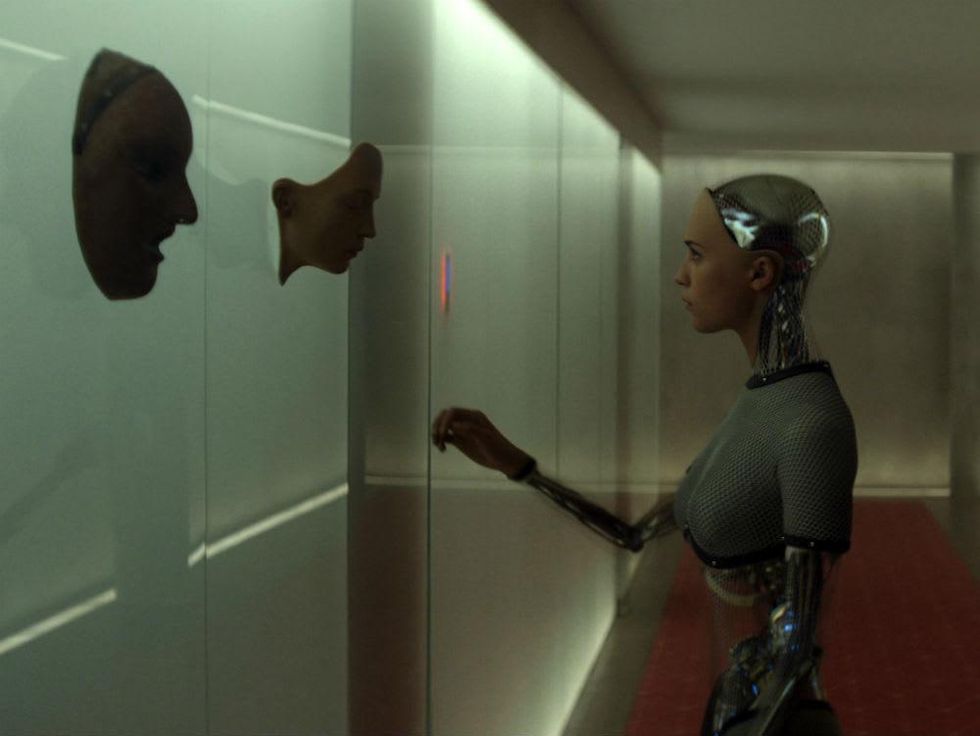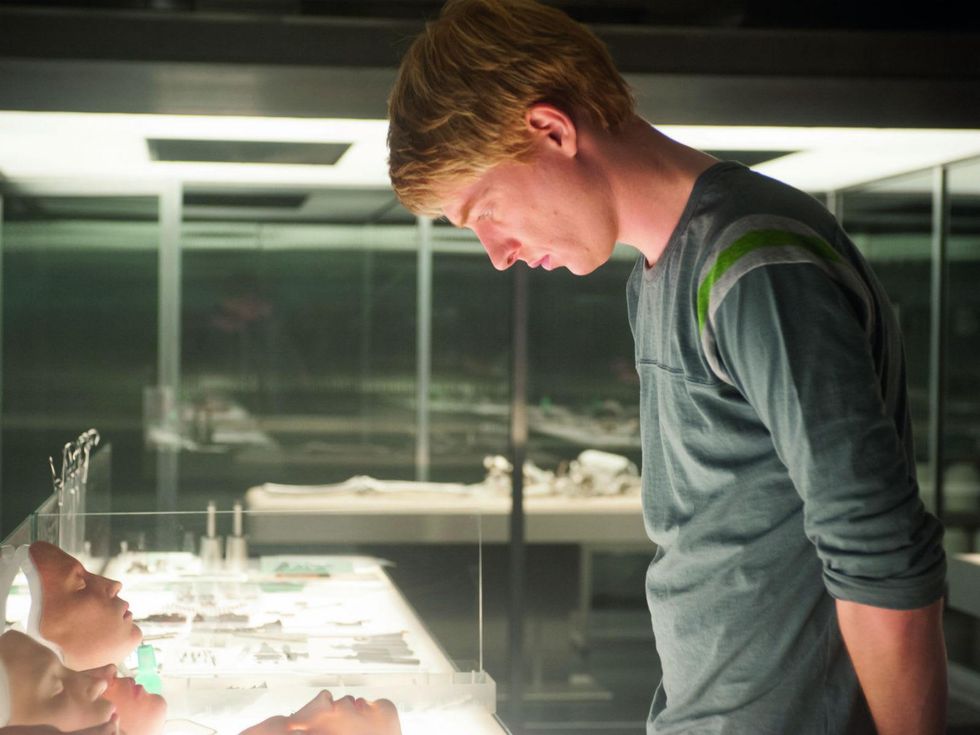A.I. Twist
Ex Machina intrigues as intelligent exploration of man vs. machine
The obsession with — or fear of — artificial intelligence in movies dates back at least to the 1960s, starting with HAL in 2001: A Space Odyssey. Since then, A.I. has made numerous appearances in films in one form or another, but rarely without the underlying sense that creating a sentient robot or system would spell doom for humanity.
And so it is in Ex Machina, in which Caleb (Domhnall Gleeson), who works for a Google-like company, gets invited out to the remote estate of the company’s founder, Nathan (Oscar Isaac), to check out his latest project. Having conquered the Internet, Nathan has set his sights higher, namely creating a robot that can think and feel just like humans.
Caleb is tasked with determining whether Ava (Alicia Vikander), who mainly consists of a human-looking face on an otherwise fully robotic body, can pass the Turing test; that is, whether she acts and speaks like a human would in various situations. But the more time Caleb spends with Ava, the more he’s drawn to her, leading him to make some questionable decisions.
The film, written and directed by Alex Garland, initially challenges expectations a bit by having Nathan, not Ava, be the one who raises suspicions. He’s an unapologetic drunk whose intentions with Ava and previous robots he created grow more nefarious the more Caleb learns. That possible malevolence is more pronounced when compared with the seemingly innocent Ava, who expresses doubt and fear in private moments with Caleb.
Garland does a great job in playing Caleb off both Nathan, whom he greatly admires, and Ava, with whom he can’t help but empathize. But as the film goes along, the story loses its ingenuity a bit, becoming more predictable. It still makes for an enjoyable ride, but one that’s less thought-provoking and more crowd-pleasing.
Gleeson and Isaac, who have both enjoyed rising careers in recent years and will co-star in the new Star Wars movie, get to show off their respective skills in some juicy scenes. Both have the ability to capture your attention with minimal effort, something that’s especially helpful in a story like this.
Vikander has arguably the tougher job, retaining Ava’s essential robotic nature while also trying to be human-like. It’s a tricky balance that she pulls off nicely, especially the longer the film goes along.
Ex Machina may not have you cowering in fear about when sentient robots become a reality, but it does make for an entertaining film that puts an interesting twist on the relationship between man and machine.




